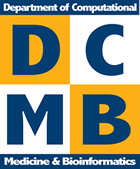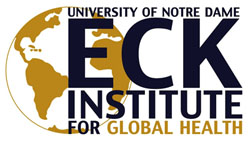EDI Seminar Series
Through the organization of the ISCB Equity, Diversity and Inclusion Committee, special webinar series will be presented which highlight under-represented high impactful research of its members. These webinars are open access and complimentary to the broader scientific community.
Archived Webinar Series
Indigenous Voices in Computational Biology
This series of presentations features Native voices of ISCB's membership, the broader scientific community, and the general public to highlight Indigenous research and to help build capacity for computational biology in Indigenous communities.
Recently, Indigenous authors have published several high impact articles on topics related to genomic data sharing [1], engagement with Indigenous peoples in paleogenomics [2], and responsible research on ancient DNA [3] that are important to the computational biology community.
Indigenous communities have unique and significant perspectives with respect to knowledge generation (e.g. [4-6]) in many fields related to computational biology, including biomedical and agricultural research. Many biologists are looking to traditional ecological and Indigenous knowledge to inform approaches to climate change, mass extinction and ecosystem degradation. Indigenous epistemological approaches are also important in investigations of human health and well-being [7].
| Click here to watch | Rene Begay, University of Colorado School of Medicine, Indigenous Health Disparities |
| Click here to watch | Keolu Fox, University of California, San Diego, Inclusivity and Precision Medicine Initiatives |
| Click here to watch | Krystal Tsosie, Native BioData Consortium, Bioethics of Indigenous Genomics |
| Click here to watch | Matt Anderson, Ohio State University, Microbiome |
| Click here to watch | Stephanie Russo Carroll, Native Nations Institute, Indigenous data sovereignty |
| Upcoming MAR 17 2:00 PM EDT |
Maui Hudson, University of Waikato, Biocultural Labeling and Maori Community Ethics |
- Keolu Fox, “The Illusion of Inclusion — The ‘All of Us’ Research Program and Indigenous Peoples’ DNA” New England Journal of Medicine 2020; 383:411-413 https://doi.org/10.1056/NEJMp1915987
- Krystal S Tsosie, Rene L Begay, Keolu Fox, Nanibaa’ A Garrison, “Generations of genomes: advances in paleogenomics technology and engagement for Indigenous people of the Americas,” Current Opinion in Genetics & Development 2020; 62:91-96 https://doi.org/10.1016/j.gde.2020.06.010
- Jennifer K. Wagner, Chip Colwell, Katrina G. Claw, Anne C. Stone, Deborah A. Bolnick, John Hawks, Kyle B. Brothers, Nanibaa’ A. Garrison, “Fostering Responsible Research on Ancient DNA,” The American Journal of Human Genetics 2020; 107 (2): 183-195 https://doi.org/10.1016/j.ajhg.2020.06.017
- Linda Tuhiwai Smith, Decolonizing Methodologies: Research and Indigenous Peoples (University of Otago Press 1999)
- Brian Yazzie Burkhart, “What Coyote and Thales can Teach Us: An Outline of American Indian Epistemology.” American Indian Thought: Philosophical Essays, edited by Anne Waters (Blackwell, 2004), 15-26.
- Robin Wall Kimmerer, Braiding Sweetgrass: Indigenous Wisdom, Scientific Knowledge and the Teachings of Plants (Milkweed Editions 2013)
- Krystal S. Tsosie, Katrina G. Claw "Indigenizing Science and Reasserting Indigeneity in Research," Human Biology, 91(3), 137-140, (9 June 2020)
EDI Resources
EDI Strategic Plan
- 2020-2021 EDI Strategic Plan
Components:- Increasing social accountability for change in the ISCB society
- Obtaining data and developing measures to assess progress
- Voluntary training: The “ISCB Awareness toolkit”
- Recruitment initiative
- Mentoring
Read ISCB’s EDI Strategic Plan
Read ISCB's awareness toolkit associated with the Strategic Plan
EDI Statements and Policies
- A Safe Space (ISCB Code of Conduct)
- ISCB's Statement on Countering Social Injustice
- ISCB Writes Nature Communications Urging the Correction/Retraction of Recent Article on Mentoring
EDI Annual Reports
- ISCB Equity, Diversity, and Inclusions 2020-2021 Annual Report
- ISCB Equity, Diversity, and Inclusions 2021-2022 Annual Report
- ISCB Equity, Diversity, and Inclusions 2022-2023 Annual Report
- ISCB Equity, Diversity, and Inclusions 2023-2024 Annual Report
Research on Equity, Diversity and Inclusion
Additional EDI Resources
- National Institute of Health (USA) Diversity Data Finder: https://diversity.nih.gov/science-diversity/diversity-data-finder
- National Institute of Health (USA) Diversity Resources: https://diversity.nih.gov
- Guidelines on recruiting and hiring diverse faculty (from UW Madison) https://wiseli.wisc.edu/wp-content/uploads/sites/662/2018/11/SearchBook_Wisc.pdf
- Reviewing applicants, research on bias and assumptions (from UW Madison): https://wiseli.wisc.edu/wp-content/uploads/sites/662/2018/10/BiasBrochure_3rdEd.pdf
- Materials from ISMB 2025 Tutorial on assessing and enhancing digital accessibility of biological data and visualizations: https://inscidar.github.io/
biological-accessibility- tutorial/
- Ten Simple Rules for Making Biomedical Data Resources Accessible:https://doi.org/10.1371/
journal.pcbi.1013657
- Review of the state of accessibility of biological data resources: https://www.nature.com/
articles/s41598-025-08731-7
- Interactive Science Data Accessibility Report: https://inscidar.org/
- AltGosling, a tool to generate alt text for genomics visualizations: https://doi.org/10.1093/
bioinformatics/btae670
EDI Papers/Literature
- A look into ISCB:
Casey Greene's Paper: https://www.biorxiv.org/content/10.1101/2020.04.14.927251v2 - Other Diversity Research articles: https://diversity.nih.gov/find-read-learn/diversity-research-articles
ISCB Equity, Diversity and Inclusion (EDI) Mission
 ISCB is committed to creating a safe, inclusive, and equal society for all our members. These values are enshrined in the ISCB’s Code of Conduct, values, and ethics. We acknowledge, respect, and promote the value of a diverse community as core to our international organization and culture.
ISCB is committed to creating a safe, inclusive, and equal society for all our members. These values are enshrined in the ISCB’s Code of Conduct, values, and ethics. We acknowledge, respect, and promote the value of a diverse community as core to our international organization and culture.
ISCB continues to seek to create a diverse and inclusive environment where all can come together, meet, exchange ideas, and work toward goals in an atmosphere of safety, respect, and civility. The ISCB Board of Directors approved ISCB’s first EDI Strategic Plan (see under EDI Resources) as proposed by the ISCB EDI Committee.
The ISCB EDI Committee shall (a) identify the inclusion and diversity strengths, issues, and opportunities within all aspects of ISCB; (b) develop strategies and plans to examine ways in which we include and exclude (however unintentionally) ISCB members; (c) systematically examine aspects of ISCB to enhance its effectiveness and ability to meet the needs of its diverse membership; and (d) respectfully document the successes of inclusivity approaches.
The ISCB EDI Committee serves the ISCB Board of Directors by engaging our shared experiences, and promoting a community of respect that honors the humanity of all.
The EDI Committee is an ISCB Outreach Committee. It is the EDI Committee's job to: (a) make recommendations regarding inclusive and diverse approaches, (b) examine programs, activities, policies, and practices to determine intentional or unintentional exclusiveness, and (c) engage members in scholarly dialogues, in consultation with the ISCB Board of Directors.





